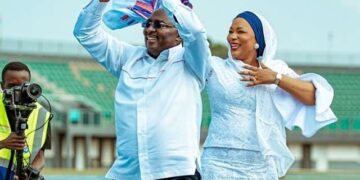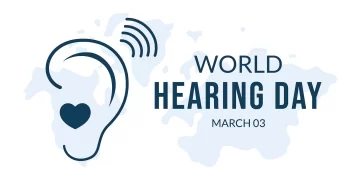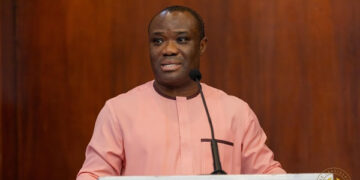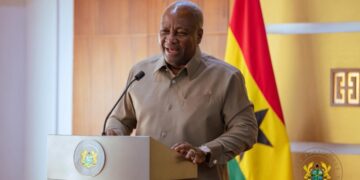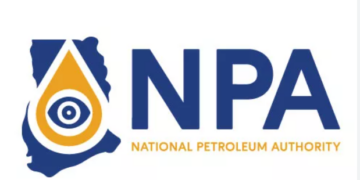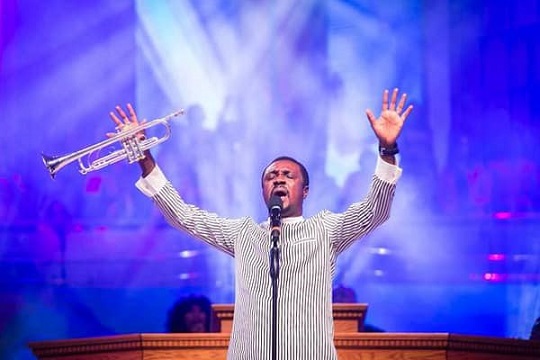Ghanaian gospel artists are being challenged by highly regarded Nigerian gospel performer Nathaniel Bassey to not let singing in regional dialects restrict their influence and audience worldwide.
Nathaniel Bassey made a strong plea during yesterday’s Jesus Christ Encounter event at the Accra Sports Stadium. He claimed that although Ghanaian gospel musicians were highly gifted, they were not receiving international recognition because they primarily sang in Twi.
“In the Next 4 To 5 years, Psalmist from Ghana will come to Nigeria and host their own concert, that your songs will rise from Ghana to the nations of the earth.
“As a way of instruction, can I plead with Ghanaian music ministers to write songs in English? Yes I know you love your local dialect, Twi etc but there is an anointing on you and the world needs to hear your songs,” Nathaniel Bassey stated.
The popularity of Nathaniel Bassey could potentially highlight some of the difficulties faced by Ghanaian gospel musicians, such as the low level of support for their English-language compositions.
Read Also:Pregnant women, nursing mothers to exercise caution when eating seafood
Celestine Donkor encouraged listeners to embrace her English-language gospel songs with the same fervor as their local languages, sparking discussions on the future of Ghanaian gospel artists in this area during an interview with Graphic Showbiz last year.
The Agbebolo singer claimed that not supporting their English songs significantly reduced the potential of gospel performers to the boundaries of their home nation and effectively made them into local heroes, impeding their chances of getting recognized on the international stage.
She added that she had noticed over the years—through her songs’ performances and albums in both the indigenous and English languages—that the former was more popular, which she believed hindered the ascent of Ghanaian musicians on the international stage.
“Over the years, I have noticed a trend with my songs. Anytime I release a song that is 100 per cent English, it has low streaming and downloads from Ghana. Interestingly, it is a different story in other African countries.
“It’s quite surprising that when songs are from Nigeria and they are 100 per cent in English, they are sung in churches and are always on people’s playlists.
“They are fully embraced but the moment an English song is coming from a Ghanaian artiste, it doesn’t get the same reception,” she said at the time.

